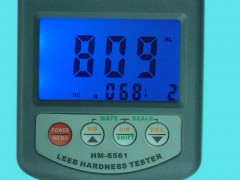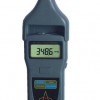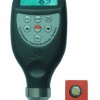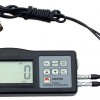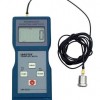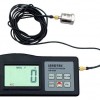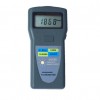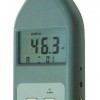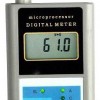1 Feature and Specifications
1.1 Typical Applications
* Die cavity of molds
* Inspection of bearing and other mass produced parts on a production line
* Failure analysis of pressure vessel, steam generator and other equipment
* Inspection of installed machinery, permanent parts of assembled systems and heavy work pieces.
* Testing surface of a small hollow space
* Material identification in the warehouse of metallic materials
* Rapid testing in large range and multi-measuring areas for large-scale work piece
1.2 Testing Features
* Test at any angle, even upside down.
* Direct display of hardness scales HRB, HRC, HV, HB, HS, HL.
* Large memory could store 250 groups including single measured value, impact direction, material and hardness scale etc.
* User recalibration function allowed.
* Can communicate with PC computer for statistics and printing by the optional cable.
* Manual or automatic shut down.
* Low battery indication.
1.3 Technical Specifications
Display: 12.5milimeter LCD with back light
Accuracy: Display error about 0.8 percent at LD=900
Measuring range: 200-900L
Conversion: HL to HRC to HRB to HB to HV to HSD
Materials: 9 different common materials
With RS232C interface
Memory: 250 data can be stored and re-readable
Impact device: D will handle the majority of hardness testing applications.Weight: 75gram
Power supply: 2x1.5V AAA size battery
Dimension: 146×65×36mm
Weight: 130g (not including batteries)
Working temperature: minus 10celsius degree to 50celsius degree
Storage temperature:minus 30celsius degree to 60celsius degree;
Relative humidity: minus90 percent

